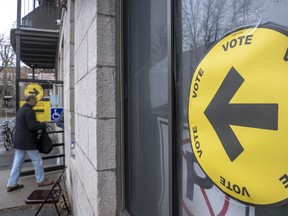World
Elections Canada Faces Challenges as Early Voting Soars

Canada’s Chief Electoral Officer, Stéphane Perrault, has expressed concerns regarding the increasing demands placed on Elections Canada due to a significant rise in early voting. In his retrospective assessment of the spring federal election, Perrault noted that a record 44 percent of voters cast their ballots prior to the official voting day on April 28, 2025. This shift in voting behavior highlights a departure from traditional patterns where most individuals waited until election day to participate.
While the election recorded the highest participation rate in three decades at 68 percent, Perrault indicated that the surge in advance voting and special ballots, coupled with a series of recent snap elections, has stretched the agency’s resources thin. Long wait times were evident during early voting days last spring, with some locations reporting waits exceeding one hour on April 18.
Strain on Elections Canada
In his report, Perrault stated, “The continued rise in popularity of advance polls shows an ongoing shift in voting habits. This marked trend has reached a point where it threatens the agency’s ability to meet the expectations of electors for this particular service, at least for general elections that are not held on a fixed date.” He emphasized that the logistical challenges associated with early voting are compounded by the lack of flexibility in the time available to recruit workers and secure polling places.
Perrault acknowledged that despite these challenges, Elections Canada successfully oversaw the federal election and affirmed the legitimacy of the results. However, he warned that persistent issues need addressing before the next election, particularly as early voting has increased from just 7.5 percent over the past 25 years. At this current trajectory, it is possible that half of all voters may opt for early ballots in the future.
The unpredictable nature of Canada’s minority Parliament presents additional complications, as snap elections can be called at any time before the next fixed election date in October 2029. Perrault explained that such elections exacerbate the logistical hurdles of recruiting sufficient poll workers and securing polling stations quickly.
Proposed Solutions to Improve Early Voting
Perrault suggested potential solutions to alleviate these pressures, including increasing the minimum length of federal campaigns or having parties announce longer campaign periods when calling a snap election. “I would like to see a minimum length, when we’re not in a fixed-date election scenario, that is a bit longer,” he stated, proposing an extension of a few days to one week.
Furthermore, he highlighted that the increased urgency to prepare for early and special ballots has led to human errors. A notable incident occurred in the Montreal-area riding of Terrebonne, where the Liberals narrowly defeated the Bloc Québécois by just one vote, yet over 100 special ballots were sent with incorrect return postal codes.
Perrault also addressed the “unacceptable” events that occurred in the northern community of Nunavik, where voters assigned to two electoral offices faced barriers preventing them from casting their ballots. Earlier this year, he visited the community to personally apologize to residents.
As the landscape of voting continues to evolve, the emphasis on adapting to changing voter behaviors and expectations remains critical for the integrity and effectiveness of Canada’s electoral processes. Perrault’s insights shed light on the pressing need for adjustments to ensure that Elections Canada can meet the demands of a modern electorate.
-

 World4 months ago
World4 months agoScientists Unearth Ancient Antarctic Ice to Unlock Climate Secrets
-

 Entertainment4 months ago
Entertainment4 months agoTrump and McCormick to Announce $70 Billion Energy Investments
-

 Lifestyle4 months ago
Lifestyle4 months agoTransLink Launches Food Truck Program to Boost Revenue in Vancouver
-

 Science4 months ago
Science4 months agoFour Astronauts Return to Earth After International Space Station Mission
-

 Technology2 months ago
Technology2 months agoApple Notes Enhances Functionality with Markdown Support in macOS 26
-

 Top Stories3 weeks ago
Top Stories3 weeks agoUrgent Update: Fatal Crash on Highway 99 Claims Life of Pitt Meadows Man
-

 Sports4 months ago
Sports4 months agoSearch Underway for Missing Hunter Amid Hokkaido Bear Emergency
-

 Politics3 months ago
Politics3 months agoUkrainian Tennis Star Elina Svitolina Faces Death Threats Online
-

 Politics4 months ago
Politics4 months agoCarney Engages First Nations Leaders at Development Law Summit
-

 Technology4 months ago
Technology4 months agoFrosthaven Launches Early Access on July 31, 2025
-

 Top Stories2 weeks ago
Top Stories2 weeks agoFamily Remembers Beverley Rowbotham 25 Years After Murder
-

 Top Stories5 days ago
Top Stories5 days agoBlake Snell’s Frustration Ignites Toronto Blue Jays Fan Fury




















